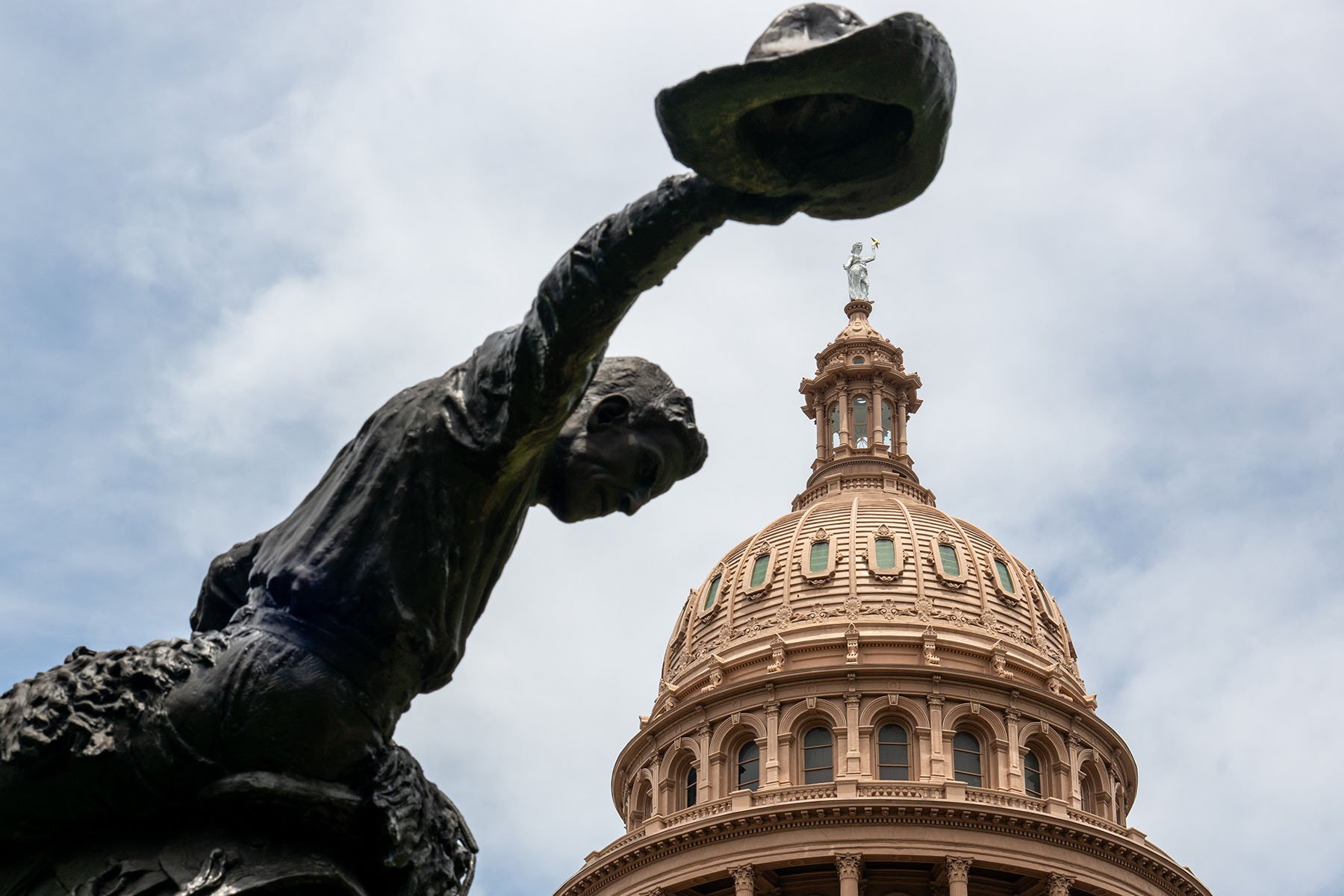Texas lawmakers voted to enact sweeping new restrictions on abortion pills mailed to the state, offering a possible blueprint for other states that have banned abortion.
House Bill 7 gives private citizens the right to sue health providers for mailing, prescribing or providing abortion medication to patients in the state of Texas; providers sued under the bill risk penalties of at least $100,000. The bill, which passed after heated negotiations between the state’s various anti-abortion advocacy groups, now awaits Gov. Greg Abbott’s signature. Its supporters believe it could represent a new step in the national battle over abortion rights. The bill will also authorize lawsuits against pharmaceutical manufacturers if they make medications used by Texans for abortion — a provision that could chill drug development and make the pills harder to attain for people beyond the Lone Star State.
Texas is the largest state to have almost completely outlawed abortion. But thousands of residents each month have continued to terminate their pregnancies by ordering medication from health care providers who practice in states where the procedure remains legal. Those medical professionals work under the protection of shield laws, statutes that hold their home states won’t cooperate with an out-of-state prosecution. One estimate suggests that by the end of 2024, more than 3,400 Texans received these telehealth abortions each month.
Patients who receive abortion pills in the mail can end their pregnancies from their own homes, a simpler and cheaper option than traveling to another state for care. Global health organizations have endorsed telehealth abortions. And in the years since Roe v. Wade’s overturn, the practice has soared in popularity — so much so that despite the proliferation of state bans, the number of abortions done in the United States has actually increased. About 1 in 4 abortions are performed through telehealth. Half of those are for people living in states with abortion restrictions, getting care from shield law providers.
“This bill does not protect women children or families,” state Sen. Carol Alvarado, a Democrat, said during the legislature’s debate. “It deputizes Texans as bounty hunters. It replaces compassion with suspicion.”
Abortion opponents across the country have been in search of a way to stop this practice. In Texas, Attorney General Ken Paxton has launched a civil lawsuit against a shield law provider, Dr. Margaret Carpenter of New York; the case is now being litigated in state courts. Louisiana Attorney General Liz Murrill has filed criminal charges against Carpenter.
Two Texas residents have filed separate civil cases against shield law providers. Both cases are being argued in federal court by lawyer Jonathan Mitchell, Texas’ former solicitor general who has spearheaded several anti-abortion cases.
In Washington, D.C., major anti-abortion groups have been pressing the federal government to impose new restrictions on mifepristone, one of the drugs used in medication abortions, that would effectively outlaw telehealth.
None of those efforts has stopped telehealth abortions.
The Texas bill, backed by the influential lobby Texas Right to Life, could offer a new path forward. Modeled after the state’s six-week abortion ban — which in 2021 eliminated access to most abortions in the state, even before Roe’s overturn — the legislation threatens shield law providers with financially ruinous lawsuits. Still, it’s not yet clear how providers in other states will respond.
“I think we’ll just see,” said one California-based shield law physician, who requested that her name be withheld because of the lawsuits filed against her colleagues. “If it’s state versus state, it feels like we’ve got a solid plan.”
Even some abortion opponents expressed skepticism that the bill would play a meaningful role in blocking the distribution of abortion pills — an issue many believe will ultimately be settled in federal court.
“Perhaps it has some potential, but I think it was vastly oversold,” said Kyleen Wright, who heads Texans for Life, an anti-abortion group.
The bill was subject to heated negotiation between various anti-abortion groups. Initially proposed in March, a previous version of the abortion pill bill failed in the final days of Texas’ regular legislative session after lawmakers ran out of time to vote it out of the state’s House of Representatives.
Plaintiffs related to the “unborn child” can receive $100,000 in damages through lawsuits filed against abortion providers. People with no connection to the pregnancy can receive $10,000 if they file suit; the remaining $90,000 would be donated to a charity, though the bill doesn’t specify which — a modification made to win over lobbyists from Texans for Life and the Texas Catholic Conference of Bishops, who had both voiced concerns the bills could encourage a plethora of lawsuits from people with no connection to the pregnancy, or ultimately result in legal action targeting abortion patients themselves. The bill also explicitly prohibits using these civil lawsuits to force someone who received an abortion to sit for a deposition.
Those changes reflect only one obstacle the bill faced. Initially proposed in March, a previous version of the abortion pill bill failed in the final days of Texas’ regular legislative session after lawmakers ran out of time to vote it out of the state’s House of Representatives.
A collection of abortion opponents, including Texas Lt. Gov. Dan Patrick, pressed Abbott to call lawmakers back to Austin for a special session that would abortion pill restrictions. But the bill did not pass in Texas’ first special session, which ended on August 15 after Democratic lawmakers temporarily fled the state to block passage of GOP redistricting legislation.
Abbott then called a second month-long legislative session to begin that same day. Democrats returned to the state after California Gov. Gavin Newsom, a Democrat, committed to having his state maps redrawn as well, potentially neutralizing Republicans’ congressional gains in Texas.





